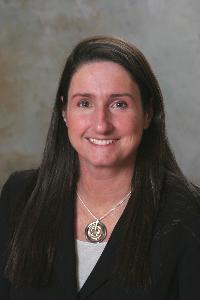In the years since the recession, funding is starting to trickle back into Idaho’s K-12 education, but higher education has been sent to the back of the line. Tuition at Idaho’s colleges and universities has skyrocketed in response to lack of adequate state funding, our post-secondary “go-on” and graduation rates are among the lowest in the nation, and employers complain they can’t fill jobs because we aren’t turning out enough skilled workers.

This Spring, Gov. Butch Otter convened a Higher Education Task Force to address this long-neglected sector of our education system. Among the recommendations of the task force is a simple but revolutionary system that could solve many of our underlying problems in one fell swoop: the “co-op” model.
While many American universities have successfully gone down the co-op path, the mother ship of co-op programs was established at the University of Waterloo in Ontario, Canada. I have several friends who went there, all of whom went on to successful careers. Last year, I was part of a delegation to Waterloo that included Idaho’s director of the Department of Labor, the director of the STEM Action Center, and professors from most of Idaho’s universities: ISU, BSU, U of I, LCSC and BYU-Idaho. The secret sauce is very simple – Waterloo students spend their school career alternating between full-time school semesters and full-time work semesters. The university aggressively recruits employers (over 7,000 employers participate) to ensure these are meaningful jobs that relate directly to the student’s course of study.
The benefits to students, employers, and the economy from this system are off the charts. By the time they graduate, these students have two full years of employment under their belts across six different employers. Students love it because it allows them to try out different employers and discover what they really enjoy before committing to a post-graduation job. Waterloo students typically graduate debt-free because the work semesters provide enough income to cover their tuition and living expenses. As an added bonus, they generally start at much higher salaries than other graduates because their breadth of work experience puts them in high demand.
These co-op students don’t have to juggle a job around school because a work semester is for work and a school semester for school. This helps them focus and succeed better in both environments. It also opens up more job opportunities. Students have geographic freedom to accept a job anywhere during those work semesters because they don’t have to commute to school. In Idaho, such a system would enable a University of Idaho student to pay for school by working a semester at the Idaho National Lab, or an Idaho State University student to work a semester at a tech start-up in Boise. Because the work semesters aren’t always scheduled during summer, students can take advantage of job opportunities that are available in winter, spring and fall.
Employers involved in the co-op program fly thousands of miles to recruit participating students. During our Waterloo tour last year, employers told us these graduates make better practical use of their school-learning time due to their work experiences. They also tend to have superior “soft skills” that help them integrate effectively into a workplace. The employers also found it easier to create meaningful jobs for co-op students because the positions are full-time and can be filled throughout the year.
The overall economic benefits were remarkable. The town of Waterloo is roughly the size of Boise and is located hours away from the nearest large city (Toronto). Because of the co-op program, the town has over 1,000 technology start-up companies that are bringing in over $37 billion per year. Global companies such as Intel, Google, and Electronic Arts are building facilities in Waterloo to have better access to the co-op students. After seeing first-hand the remarkable success of the co-op program I came back more eager than ever to try it out in Idaho.
After years of promoting this idea, I got my wish. The Higher Education Task Force just finalized its recommendations which included a recommendation that we launch co-op programs in Idaho colleges and universities. It will take work and time to get this off the ground – Waterloo didn’t spring up overnight. But, it’s worth the effort to give Idaho kids a path to an exciting, relevant and affordable education, followed by a great career.
Written by Rep. Ilana Rubel, the assistant minority leader of the Idaho House of Representatives. She represents District 18 in Boise and is currently serving her third term.
